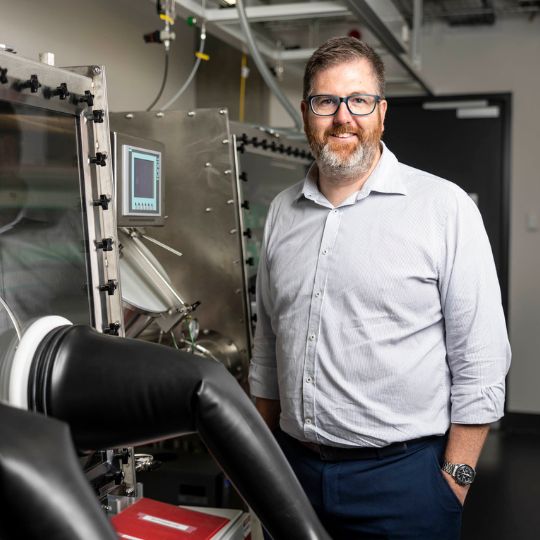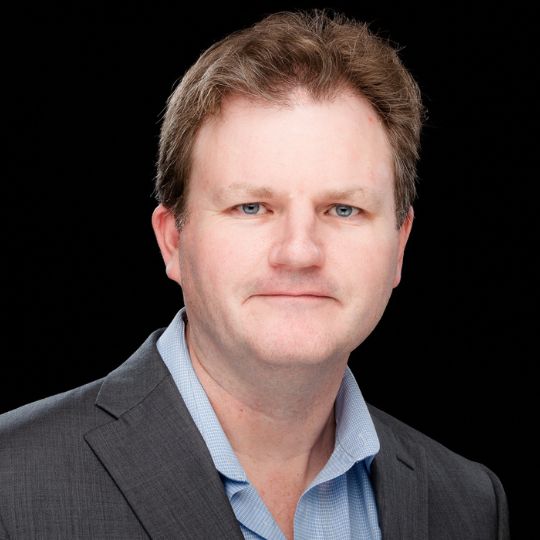The National Measurement Institute announced the winners of the 2025 Measurement Awards at a special event during National Science Week.
The awards highlight the world-leading and world-changing measurement science happening inside Australian laboratories.
Dr Bruce Warrington, Australia’s Chief Metrologist and CEO of the National Measurement Institute, commended the winners and finalists.
'These awards recognise and celebrate exceptional people doing great things in measurement science. Measurement science supports everyday life —making it safer, more productive and future ready. The awards highlight the impact metrology has right across Australia and beyond,' Dr Warrington said.
'The achievements of the winners and finalists of the Measurement Awards represent the spirit of the National Measurement Institute's mission, highlighting the importance of accurate and innovative measurement in advancing science and technology.'
2025 Measurement Awards winners
- Barry Inglis Medal for Sustained Contribution to Australian Metrology: Prof Dane McCamey, The University of New South Wales
- NMI Measurement Impact Award for Measurement-related Achievements: Prof Michael Johns, The University of Western Australia
- Measurement Achievement Encouragement Award for Early to Mid-career Achievements and the People’s Choice Award: Dr Charitha De Silva, The University of New South Wales
2025 Measurement Awards winner profiles
Professor Dane McCamey

Professor Dane McCamey from the University of New South Wales received the 2025 Barry Inglis Medal for Sustained Contributions to Australian Metrology.
Professor Dane McCamey has achieved significant advancements in measuring electron spin, a quantum property of electrons. Electron spin has a wide range of applications, from controlling how LEDs emit light through to enabling Magnetic Resonance Imaging (MRI) scans in hospitals.
Professor Dane McCamey is internationally recognised for advancing electron spin resonance (ESR) techniques to directly measure and control spin-dependent processes in optoelectronic materials. His innovations in electrically- and optically- detected magnetic resonance have enabled precision measurements in devices previously inaccessible to conventional methods, transforming understanding of photovoltaics, OLEDs, and quantum sensors. Alongside significant impact on the global scientific community (the discovery of quintets in singlet fission for example), his work also underpins commercial ventures like UBIQUT Pty Ltd.
On receiving the award, Professor McCamey said: 'Measurement is a critical national capability that enables both fundamental scientific discovery alongside technology development. It is a real honour to receive the Barry Inglis medal, particularly for the opportunity it provides to reflect on my network of collaborators around the world without whom much of my work would not have been possible.'
Professor Michael Johns

The University of Western Australia’s Professor Michael Johns received the 2025 NMI Measurement Impact Award for Measurement-related Achievement.
Professor Michael Johns was recognised for his work developing new and more accurate methods to measure emulsion droplet size distribution. Professor Johns and his team at UWA have developed new non-invasive methods to measure and characterise these emulsions using Nuclear Magnetic Resonance imaging. They have also developed and released free software to enable better modelling of emulsion droplet sizes, which is now used by scientists around the globe. Their techniques have been extensively adopted across a range of industry applications, from shampoo manufacture through to wastewater management from the coal and oil industry.
In his own words, Professor Johns describes his research, “I have been conducting research on both the development and application of benchtop magnetic resonance measurement hardware and associated techniques for over three decades, initially at the University of Cambridge and since 2011 at UWA. A key focus has been the non-invasive characterisation of opaque emulsions, specifically measurement of their droplet size distribution. In addition to informing on fundamental emulsion science, this research activity has also covered a very wide application remit including foods, personal care products, agrochemicals, explosives and wastewater.”
Professor Michael Johns is the Chair of Chemical and Process Engineering at the University of Western Australia (UWA). He is also the Research Director of the Future Energy Exports CRC. At UWA he co-leads the Fluid Science and Resources Research Group which houses over 50 research workers.
On receiving the award Professor Michael Johns said: 'On behalf of my research team, I am honoured to accept this award. It is truly the result of the collaborative efforts of a large number of highly talented and inspirational PhD students and research assistants who have worked in my group. I also want to recognise the critical importance of measurement science to virtually all of science and engineering and thus the vital role played by the National Measurement Institute.'
Dr Charitha de Silva

Dr Charitha de Silva from the University of New South Wales received the Measurement Achievement Encouragement Award for Early to Mid-career Achievements.
Dr Charitha de Silva has devoted his professional efforts to innovative flow measurement work, including his contributions to COVID-19 research. His fluid dynamics research includes exploring the motion of liquids and gases in diverse environments, from the small scale of our body's circulatory system through to airflow around an aircraft. In response to the COVID 19 pandemic, Dr de Silva led research efforts to develop experimental methods for measuring respiratory exhalations. His innovative techniques provided valuable data on the spread of respiratory droplets.
In his own words Dr de Silva describes his work, 'The most rewarding aspect of my work is hands-on experimentation and developing cutting-edge measurement techniques. I enjoy using high-resolution imaging and laser diagnostics to explore fluid dynamics. Notably, I developed innovative methods to measure aerobiological flows during the pandemic and established the UNSW Aerosol Dynamics Laboratory, enabling the measurement of crucial experimental data that have led to improvements in public health guidelines. Additionally, I have developed methods that enable the precise simultaneous measurement of skin friction drag and surface pressure of turbulent flows, which is innately challenging yet crucial for developing more efficient and quieter aerodynamic designs in engineering systems. Seeing the real-world impact of my research drives my passion for advancing measurement science.'
On receiving the award Dr Charitha de Silva said: 'I’m delighted to receive this award, which reflects the collective effort of my research group, collaborators and colleagues. It affirms the value of pursuing research in measurement science that not only advances engineering but also directly benefits our community.'
People’s Choice Award
Dr Charitha de Silva also won the People’s Choice award.

